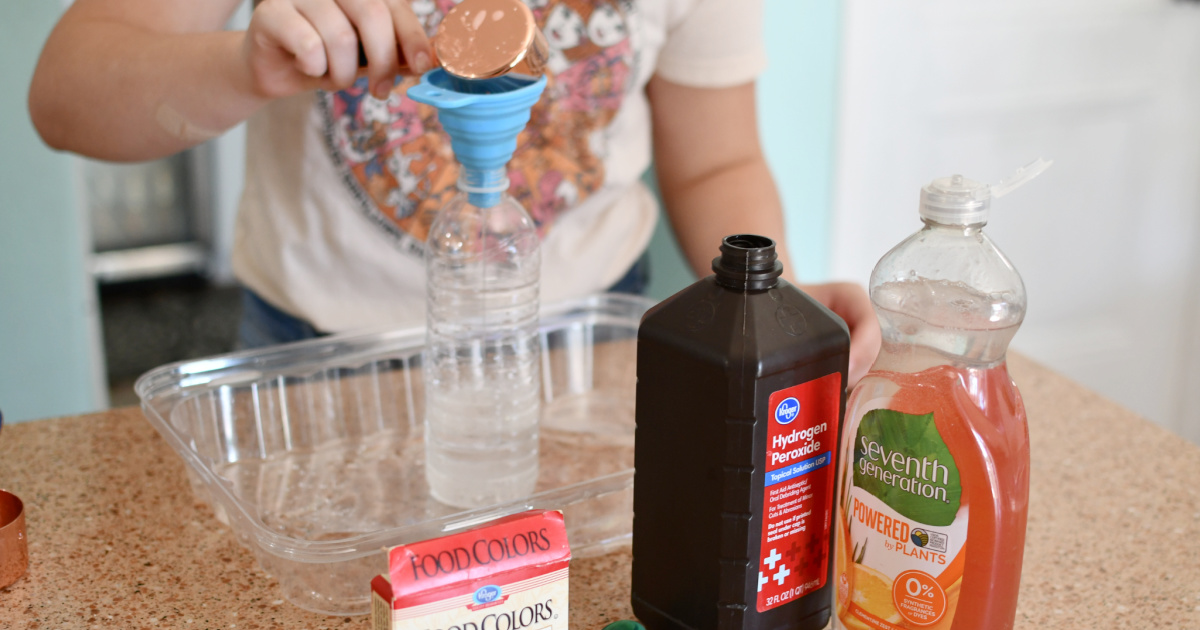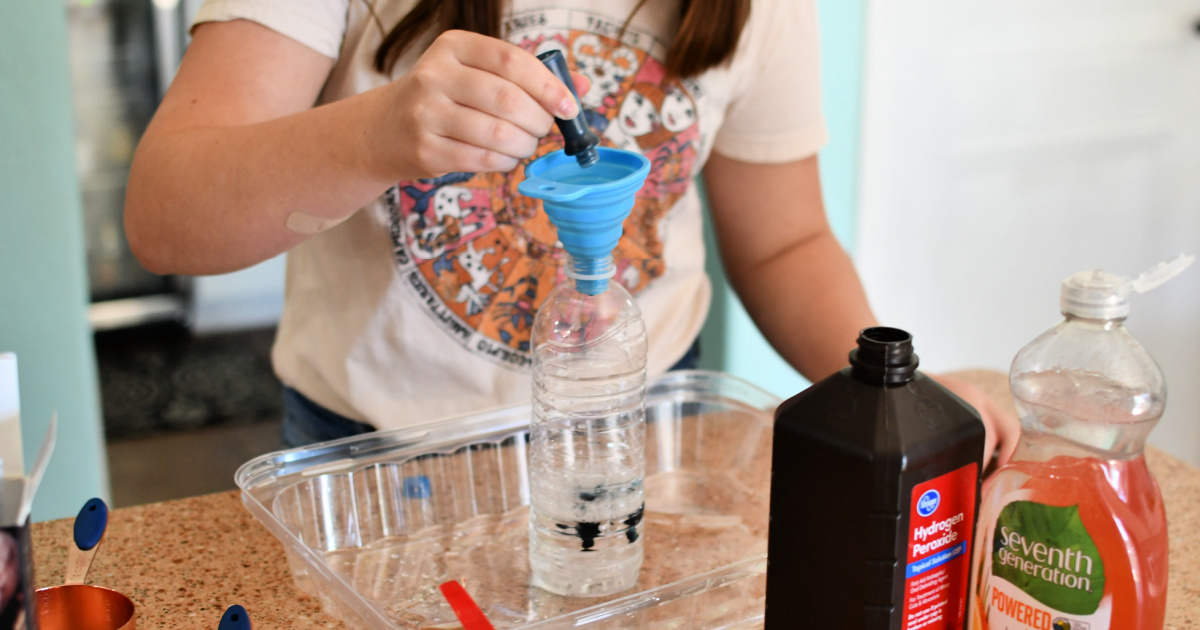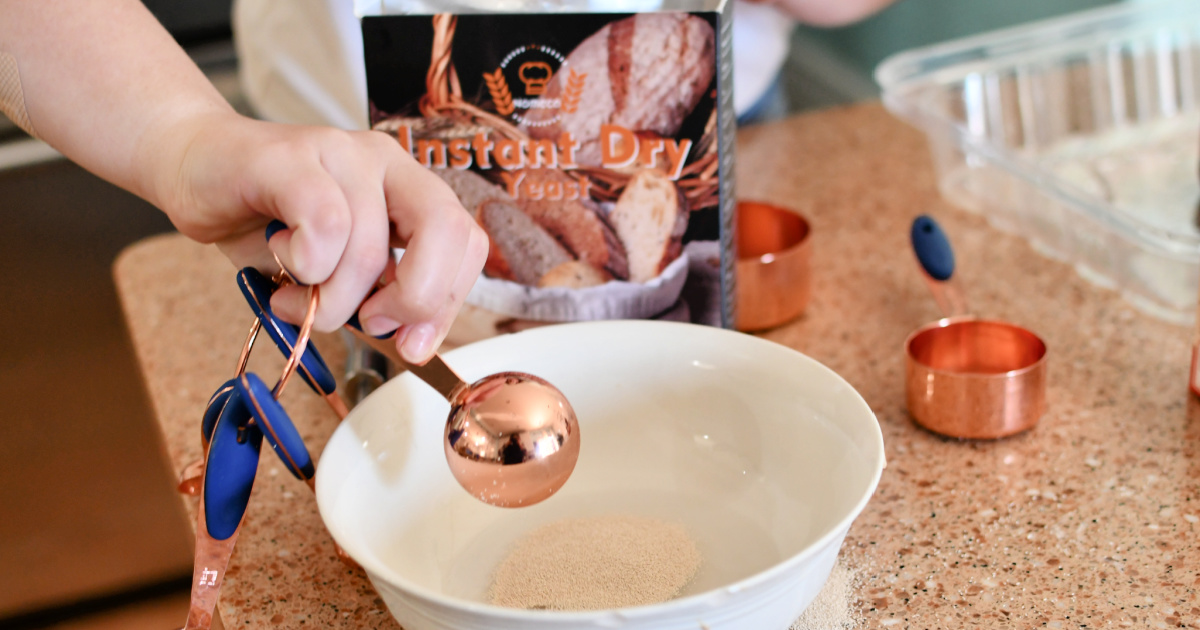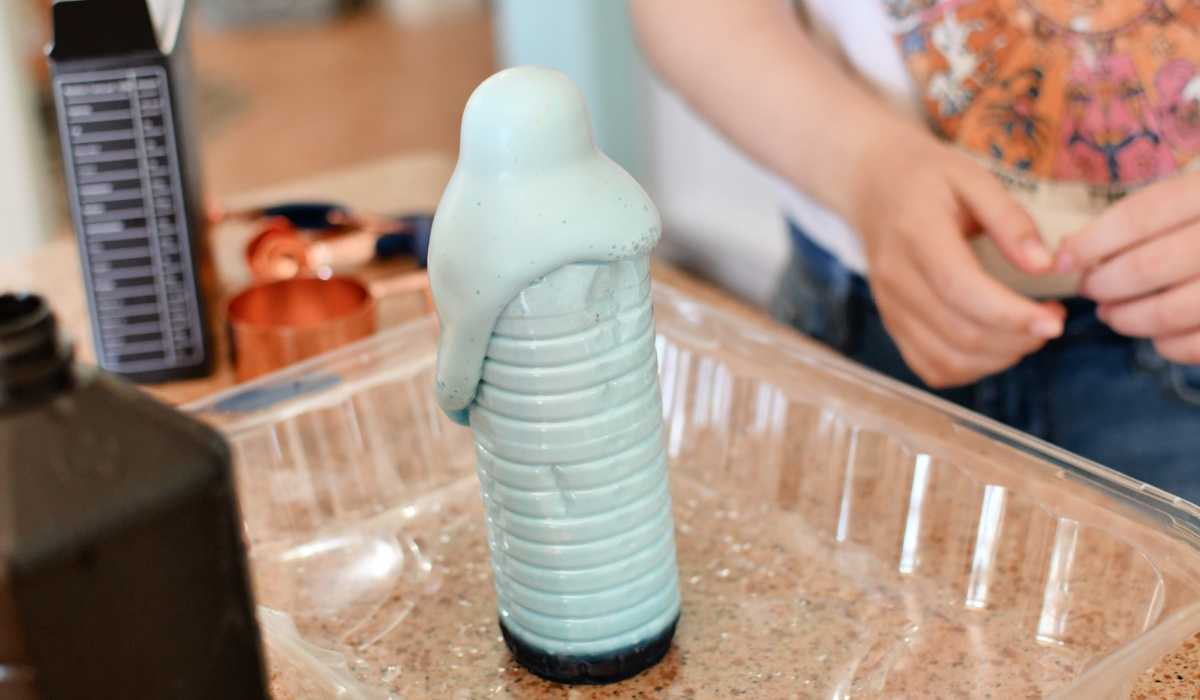
Want to do an easy science experiment at home? Here’s how to make elephant toothpaste!

If you’re looking for a fun and frugal kids activity that utilizes easy-to-find supplies you probably already have at home, consider making colorful elephant toothpaste! It’s super easy to accomplish and guaranteed to get some fun reactions, as it’s actually pretty impressive for a little science project.
If you’ve never heard of this before, follow along, and I’ll show you how to do your own elephant toothpaste experiment!

What is elephant toothpaste?
It’s a reaction caused by the rapid decomposition of hydrogen peroxide using potassium iodide or dry yeast and warm water as a catalyst that looks like huge foamy toothpaste big enough for an elephant! You can add food coloring so it will foam up into a color foam which is even more fun to look at.
Safety Note: Due to the elephant toothpaste ingredients, this experiment will not be edible so be sure to share that with any little ones that may want to taste it. Also, you’ll want to wear safety glasses when managing the hydrogen peroxide, just in case.






How To Make Elephant Toothpaste
1
Put safety goggles on. Pour the hydrogen peroxide into the plastic bottle using a funnel. Pour the liquid dish soap inside.

2
Add the food coloring to the bottle and gently swirl around.

3
Mix the yeast with warm water and add it to the bottle next. Take out the funnel.

4
Watch as the foam will immediately expand and overflow.


This Elephant Toothpaste experiment makes a fun foamy fountain!
To contain the mess, I used an upside-down cake pan disposable lid, as it will continue to pour out all over the water bottle. I highly recommend doing that, as it will be easier to clean up. It would be neat to do multiple bottles at the same time to create a multicolor experience, too.

Can you touch the elephant toothpaste?
If you use a typical drugstore 3% hydrogen peroxide, then yes, it’s safe to touch, and you can clean up messes with a paper towel and wipe clean. You’ll notice that the water bottle is actually warm. That is due to an exothermic reaction, which means it not only created foam, it created heat!
Have you done any fun and easy science experiments at home recently? Be sure to share details with us in the comments!
Learn how to make puffy sidewalk paint as a fun summer project!
Source link





